Boysenberries, a hybrid fruit derived from raspberries, blackberries, and loganberries, have garnered attention for their unique flavor and impressive nutritional profile. This article explores the various health benefits of boysenberries, supported by scientific research.
 Antioxidant Properties
Antioxidant Properties
Boysenberries are loaded with antioxidants, particularly anthocyanins, which give the fruit its deep purple hue. Antioxidants are compounds that neutralize free radicals, which can cause oxidative stress leading to chronic diseases. Studies suggest that anthocyanins in boysenberries may help reduce the risk of cardiovascular diseases and certain types of cancer by protecting cells from damage .
Boysenberries are particularly notable for their high levels of vitamin C and vitamin E, both potent antioxidants that work synergistically with anthocyanins to enhance the fruit’s overall antioxidant capacity. This combination not only helps in neutralizing free radicals but also supports skin health, immune function, and cellular repair.
Furthermore, boysenberries contain ellagic acid, another powerful antioxidant that has been studied for its potential anti-cancer properties. Ellagic acid may help prevent the binding of carcinogens to DNA, thereby reducing the risk of mutations and cancer development. This unique mix of antioxidants, including phenolic acids and flavonoids, distinguishes boysenberries from other berries, making them a particularly rich source of health-protective compounds.
 Cardiovascular Health
Cardiovascular Health
The fiber and antioxidant content of boysenberries can contribute significantly to heart health. Dietary fiber has been shown to lower LDL (bad) cholesterol levels, which is a risk factor for heart disease. Furthermore, the potassium found in boysenberries helps regulate blood pressure, thereby reducing the strain on the cardiovascular system .
In addition to their fiber and potassium content, boysenberries contain a unique blend of phytochemicals that further support cardiovascular health. One such compound is ellagic acid, which has been linked to anti-inflammatory effects. Chronic inflammation is a key contributor to the development of heart disease, so reducing inflammation can help protect the heart. Boysenberries also provide a range of flavonoids that have been shown to improve vascular function by enhancing the elasticity of blood vessels, which contributes to better blood flow and reduced risk of hypertension.
Furthermore, the vitamin C content in boysenberries supports the health of blood vessels by promoting collagen production. Collagen is a vital protein for maintaining the structural integrity of blood vessels, and its adequate synthesis is crucial for preventing vascular damage.
 Cognitive Benefits
Cognitive Benefits
Research indicates that the antioxidants in boysenberries might also benefit brain health. Anthocyanins have been linked to improved cognitive function and memory retention. They are believed to enhance neural communication and protect brain cells from oxidative stress, which could reduce the risk of neurodegenerative diseases like Alzheimer’s .
In addition to anthocyanins, boysenberries are rich in other polyphenolic compounds, such as flavonols and ellagic acid, which contribute to their cognitive benefits. Flavonols, including quercetin and kaempferol, have been shown to enhance neuroplasticity, the brain’s ability to reorganize itself by forming new neural connections. This process is crucial for learning and memory. Ellagic acid, on the other hand, has been found to have anti-inflammatory properties that may reduce neuroinflammation, a common feature in neurodegenerative conditions.
Furthermore, boysenberries contain significant levels of vitamin C, another powerful antioxidant. Vitamin C plays a role in the synthesis of neurotransmitters like dopamine, which are essential for mood regulation and cognitive function. By reducing oxidative stress and supporting neurotransmitter production, vitamin C helps maintain overall brain health and cognitive performance.
 Anti-Inflammatory Effects
Anti-Inflammatory Effects
Chronic inflammation is a contributing factor to many diseases, including arthritis and heart disease. Boysenberries contain anti-inflammatory compounds that may help alleviate inflammation. A study published in the Journal of Medicinal Food found that boysenberry extracts could reduce inflammation markers in the body, highlighting their potential as a natural anti-inflammatory agent .
Boysenberries are particularly noteworthy for their high content of anthocyanins, a type of flavonoid with potent anti-inflammatory properties. These compounds are known to inhibit the production of pro-inflammatory cytokines and reduce oxidative stress, which are key contributors to chronic inflammation. Unlike some other berries, boysenberries contain a unique combination of anthocyanins that are not only effective in combating inflammation but also exhibit high bioavailability, meaning the body can absorb and utilize these beneficial compounds more efficiently.
Additionally, boysenberries are rich in ellagic acid, another phytochemical with anti-inflammatory benefits. Ellagic acid has been shown to modulate inflammatory pathways by decreasing the activity of inflammatory enzymes and reducing the expression of inflammatory genes. This dual action of both anthocyanins and ellagic acid in boysenberries may offer a synergistic effect that enhances their overall anti-inflammatory potential, setting them apart from other fruits and berries with similar properties.
 Digestive Health
Digestive Health
The high fiber content in boysenberries supports digestive health by promoting regular bowel movements and preventing constipation. Fiber also acts as a prebiotic, fostering the growth of beneficial gut bacteria, which are crucial for a healthy digestive system. What sets boysenberries apart from other fruits is their unique combination of soluble and insoluble fiber. Soluble fiber helps absorb water, forming a gel-like substance that softens stool and eases its passage through the intestines. This not only aids in regularity but also helps maintain a balanced microbiome by providing nourishment to probiotics.
In addition to fiber, boysenberries are rich in essential nutrients like vitamin C and potassium, which play vital roles in digestive health. Vitamin C is known for its antioxidant properties, which help protect the digestive tract from inflammation and oxidative stress. Potassium, on the other hand, aids in muscle contractions, including those of the smooth muscles in the digestive tract, thus promoting healthy gut motility. This nutrient profile helps distinguish boysenberries as a particularly beneficial fruit for digestive wellness.
Furthermore, boysenberries contain anthocyanins, powerful antioxidants that give the berries their deep purple color. These compounds have been shown to reduce inflammation in the digestive tract and protect the lining of the gut. By helping to maintain the integrity of the intestinal barrier, anthocyanins may prevent leaky gut syndrome and other digestive disorders. This unique blend of fiber, vitamins, and antioxidants makes boysenberries a valuable addition to a diet focused on supporting and enhancing digestive health.
 Skin Health
Skin Health
The vitamins and antioxidants in boysenberries are beneficial for skin health. Vitamin C, for example, plays a vital role in collagen synthesis, which is essential for maintaining skin elasticity and strength. The antioxidants help protect the skin from damage caused by ultraviolet (UV) radiation and environmental pollutants, potentially reducing signs of aging such as wrinkles and dark spots .
Another unique benefit of boysenberries is their high content of ellagic acid, a natural phenol antioxidant. Ellagic acid has been shown to protect the skin from UV damage by inhibiting the destruction of collagen, a key protein that maintains the skin’s structure and firmness. This protective effect can be particularly beneficial in preventing photoaging, a process where prolonged exposure to sunlight leads to premature aging of the skin. Moreover, ellagic acid has anti-inflammatory properties, which can help soothe irritated skin and reduce redness, making it a valuable component for those with sensitive or reactive skin types.
Enhanced Immune Function
Boysenberries are a rich source of vitamin C, a vital nutrient for immune health. Vitamin C is known for its role in stimulating the production of white blood cells, which are crucial for fighting infections. Additionally, it acts as an antioxidant, protecting the immune cells from oxidative stress. Regular consumption of vitamin C-rich foods like boysenberries can help reduce the duration and severity of common colds and other infections .
Another unique feature of boysenberries is their content of essential nutrients like folate and potassium, which are vital for overall health and immune function. Folate is necessary for the production and maintenance of new cells, including immune cells, and is especially important in the synthesis of DNA and RNA. Potassium, on the other hand, helps maintain electrolyte balance and proper cellular function, which is critical during immune responses. The combination of these nutrients, along with the high levels of vitamin C and antioxidants, makes boysenberries a powerful fruit for bolstering the immune system.
Furthermore, boysenberries provide a good source of dietary fiber, which plays a crucial role in maintaining gut health. A healthy gut microbiome is essential for a robust immune system, as a significant portion of the immune system is located in the gut. The fiber in boysenberries acts as a prebiotic, feeding the beneficial bacteria in the gut and supporting a healthy microbial balance. This, in turn, enhances the body’s ability to fend off pathogens and reduce the risk of gastrointestinal infections.
Eye Health
The presence of anthocyanins and vitamin A in boysenberries can benefit eye health. Anthocyanins are known to protect the eyes from oxidative damage, potentially reducing the risk of age-related macular degeneration (AMD) and cataracts. Vitamin A, an essential nutrient for vision, supports the maintenance of the cornea and plays a role in preventing night blindness .
Continuing the focus on eye health, boysenberries also contain a unique blend of antioxidants beyond anthocyanins, such as quercetin and ellagic acid. These compounds contribute to the berry’s potent antioxidant profile, helping to neutralize free radicals that can cause cellular damage in the eyes. The antioxidants in boysenberries may support the health of the retina, which is crucial for maintaining sharp and clear vision. This is particularly important as the retina is susceptible to oxidative stress, which can lead to conditions like diabetic retinopathy and glaucoma.
In addition to antioxidants, boysenberries are a good source of vitamin C, another nutrient vital for eye health. Vitamin C helps regenerate other antioxidants within the eye, such as vitamin E, and plays a role in collagen synthesis, which is essential for maintaining the integrity of the cornea and blood vessels in the eyes. This comprehensive antioxidant protection provided by boysenberries sets them apart from other berries, making them a valuable addition to a diet aimed at supporting ocular health.
Weight Management
Boysenberries are low in calories and high in dietary fiber, making them an excellent choice for those looking to manage their weight. The fiber content promotes a feeling of fullness, reducing overall calorie intake. Moreover, the natural sugars in boysenberries provide a healthier alternative to processed sweets, helping to satisfy cravings in a nutritious way .
Bone Health
The high levels of vitamin K and manganese in boysenberries contribute to bone health. Vitamin K is essential for the synthesis of osteocalcin, a protein that helps bind calcium to the bone matrix, thereby strengthening bones. Manganese plays a crucial role in bone formation and maintenance. Regular intake of these nutrients can help prevent osteoporosis and improve overall bone density .
Anti-Cancer Potential
Emerging research suggests that the phytochemicals in boysenberries may have anti-cancer properties. Compounds like ellagic acid and anthocyanins have been shown to inhibit the growth of cancer cells and induce apoptosis (programmed cell death) in certain types of cancer. While more research is needed, these findings point to the potential role of boysenberries in cancer prevention and treatment .
Anti-Aging Effects
The antioxidant properties of boysenberries extend to anti-aging benefits. By neutralizing free radicals, these antioxidants help prevent cellular damage that can lead to premature aging. The nutrients in boysenberries, such as vitamin C and E, support skin elasticity and hydration, potentially reducing the appearance of fine lines and wrinkles. Regular consumption of these berries may contribute to a more youthful and vibrant appearance .
Anti-Diabetic Effects
Boysenberries may play a role in managing blood sugar levels, which is particularly beneficial for individuals with diabetes or those at risk of developing the condition. The dietary fiber in boysenberries slows the absorption of sugar into the bloodstream, helping to prevent spikes in blood glucose levels. Moreover, some studies suggest that anthocyanins, the antioxidants found in boysenberries, can improve insulin sensitivity, which is crucial for maintaining healthy blood sugar levels .
Respiratory Health
Boysenberries contain a variety of compounds that can support respiratory health. For instance, the anthocyanins in boysenberries have anti-inflammatory properties that may help reduce the symptoms of respiratory conditions like asthma. Inflammation of the airways is a common issue in such conditions, and the consumption of boysenberries could potentially alleviate some of these symptoms by reducing overall inflammation in the body .
Improved Blood Circulation
The nutrients found in boysenberries, such as vitamin C and flavonoids, are known to enhance blood circulation. Improved circulation can help reduce the risk of cardiovascular diseases, promote better oxygen and nutrient delivery to tissues, and support overall vitality. Enhanced blood flow also contributes to faster recovery from injuries and more efficient functioning of the body’s systems .
Metabolic Health
Boysenberries can contribute to better metabolic health due to their nutrient-rich composition. The fiber, antioxidants, and polyphenols in boysenberries help regulate metabolic processes, including fat metabolism and energy production. This can aid in weight management and reduce the risk of metabolic syndrome, a cluster of conditions that increase the risk of heart disease, stroke, and type 2 diabetes .
Detoxification
The high fiber content in boysenberries supports the body’s natural detoxification processes. Fiber helps to cleanse the digestive tract by binding to toxins and waste products, facilitating their removal from the body. Additionally, the antioxidants in boysenberries assist the liver in neutralizing toxins, further aiding in detoxification .
Improved Mood and Mental Health
Boysenberries may have positive effects on mood and mental health. The presence of folate (vitamin B9) and other B vitamins in boysenberries supports the production of neurotransmitters like serotonin and dopamine, which are crucial for regulating mood. Consuming foods rich in these nutrients can help reduce symptoms of depression and anxiety. Furthermore, the antioxidants in boysenberries protect the brain from oxidative stress, which is linked to cognitive decline and mood disorders .
Enhanced Athletic Performance and Recovery
The nutritional profile of boysenberries, rich in vitamins, minerals, and antioxidants, can benefit athletes and active individuals. The antioxidants help reduce oxidative stress and inflammation caused by intense physical activity, aiding in faster recovery. Additionally, the natural sugars and carbohydrates provide a quick source of energy, while the electrolytes like potassium help maintain electrolyte balance and prevent muscle cramps .
Nutritional Value of Boysenberries (per 100 grams)
- Calories: Approximately 50 kcal
- Carbohydrates: 12.2 g
- Sugars: 6.5 g
- Dietary Fiber: 5.3 g
- Protein: 1.4 g
- Fat: 0.3 g
- Saturated Fat: 0.0 g
- Monounsaturated Fat: 0.1 g
- Polyunsaturated Fat: 0.2 g
- Cholesterol: 0 mg
- Sodium: 1 mg
- Potassium: 180 mg
- Vitamins:
- Vitamin C: 21 mg (35% of the Recommended Daily Value (DV))
- Vitamin K: 7.8 µg (10% DV)
- Vitamin A: 102 IU (2% DV)
- Folate (Vitamin B9): 15 µg (4% DV)
- Minerals:
- Calcium: 21 mg (2% DV)
- Iron: 0.6 mg (3% DV)
- Magnesium: 18 mg (5% DV)
- Phosphorus: 24 mg (2% DV)
- Manganese: 0.6 mg (30% DV)
- Zinc: 0.1 mg (1% DV)
Additional Nutrients
- Beta-carotene: 56 µg
- Lutein + Zeaxanthin: 136 µg
Boysenberries are also a good source of various polyphenols and anthocyanins, which are beneficial compounds known for their antioxidant properties. These values can vary slightly depending on the growing conditions and ripeness of the berries.
Conclusion
Incorporating boysenberries into your diet can provide a multitude of health benefits, from improving heart and brain health to enhancing skin and digestive well-being. These berries are not only nutritious but also versatile, making them a delightful addition to smoothies, salads, desserts, and more.
Recipe
Discover a refreshing twist on your usual salad with “Pati’s Spinach and Boysenberry Salad.” This delightful dish combines the nutrient-rich goodness of fresh spinach with the vibrant, sweet-tart flavor of boysenberries. Perfect for a summer gathering or a nutritious weekday meal, this salad is not only visually appealing but also packed with antioxidants, vitamins, and fiber. It’s an easy-to-make recipe that pairs beautifully with a light vinaigrette, making it a versatile addition to any meal plan.
Contraindications to be aware of
Allergic Reactions: Some individuals may experience allergic reactions to boysenberries, especially if they have a history of allergies to berries like raspberries or blackberries. Symptoms can include itching, swelling, and gastrointestinal distress.
Gastrointestinal Issues: Due to their high fiber content, consuming large quantities of boysenberries might cause digestive discomfort, such as bloating, gas, or diarrhea, particularly in individuals with sensitive digestive systems.
Blood Sugar Levels: While boysenberries have a relatively low glycemic index, those with diabetes should monitor their blood sugar levels when consuming any fruit, including boysenberries, as they do contain natural sugars.
Kidney Stones: Individuals prone to kidney stones may need to limit their intake of boysenberries because they contain oxalates, which can contribute to the formation of kidney stones in susceptible individuals.
Drug Interactions: Boysenberries are rich in vitamin K, which plays a role in blood clotting. People on blood-thinning medications like warfarin should consume them in moderation and consult their healthcare provider, as high vitamin K intake can interfere with the medication’s effectiveness.
As with any food, it’s best to consume boysenberries in moderation and consult with a healthcare professional if you have specific health concerns or conditions.
Fascinating Facts About Boysenberry
Hybrid Origins:
Boysenberries are a hybrid of blackberries, raspberries, and loganberries. The exact lineage includes blackberry and raspberry parents, and they were further developed by farmer Rudolph Boysen in the 1920s.
Limited Commercial Production:
Unlike more common berries, boysenberries are not widely grown. They are primarily cultivated in specific regions, like New Zealand and the United States, especially in Oregon and California.
Short Shelf Life:
One reason boysenberries are not as commercially popular is their short shelf life. They are delicate and spoil quickly, which makes them less suitable for large-scale distribution.
- Forgotten Hybrid:
The boysenberry almost vanished into obscurity. It was rediscovered by Walter Knott, who famously popularized it at Knott’s Berry Farm.
Mysterious Origin Story:
The exact parentage of boysenberries remains somewhat mysterious. While known to involve raspberries, blackberries, and loganberries, the exact crossbreeding process isn’t fully documented.
- The Name Debate:
Some believe the name “boysenberry” was derived from the Old English word “boysen,” meaning farmer, though this is more folklore than fact.
- Unusually Hardy Seeds:
The seeds of boysenberries are notably hard, more so than many other berries, which can be surprising for first-time eaters.
- Secret Ingredient:
Boysenberries have been used as a secret ingredient in some high-end perfumes due to their complex and appealing scent.
Pioneering Genetic Studies:
Boysenberries were among the first fruits to be used in genetic studies of hybridization due to their mixed lineage.
Strange Seasonal Behavior:
They are known for having an unusually brief and unpredictable harvest season, which can sometimes result in sudden surpluses or shortages.
Cultural Icon:
In New Zealand, boysenberries are considered a cultural icon, often celebrated in local festivals.
Unique Pest Resistance:
Boysenberries are unusually resistant to certain pests that commonly affect other berries, such as the raspberry aphid.
Rare Polysaccharide Content:
They contain a rare type of polysaccharide that gives them a slightly gelatinous texture when cooked, making them ideal for jams and jellies without added pectin.
To explore more plants, please visit our page about plants
References
- Joseph, J. A., Shukitt-Hale, B., & Casadesus, G. (2005). Reversing the deleterious effects of aging on neuronal communication and behavior: beneficial properties of fruit polyphenolic compounds. American Journal of Clinical Nutrition, 81(1), 313S-316S.
- Rimm, E. B., Ascherio, A., Giovannucci, E., Spiegelman, D., Stampfer, M. J., & Willett, W. C. (1996). Vegetable, fruit, and cereal fiber intake and risk of coronary heart disease among men. JAMA, 275(6), 447-451.
- Shukitt-Hale, B., Carey, A., Simon, L., Mark, D. A., & Joseph, J. A. (2006). Effects of Concord grape juice on cognitive and motor deficits in aging. Nutrition, 22(3), 295-302.
- Sies, H., & Stahl, W. (2003). Nutritional protection against skin damage from sunlight. Annual Review of Nutrition, 23(1), 173-200.
- Slavin, J. (2013). Fiber and prebiotics: mechanisms and health benefits. Nutrients, 5(4), 1417-1435.
- Pullar, J. M., Carr, A. C., & Vissers, M. C. M. (2017). The roles of vitamin C in skin health. Nutrients, 9(8), 866.
- Carr, A. C., & Maggini, S. (2017). Vitamin C and immune function. Nutrients, 9(11), 1211.
- Lila, M. A. (2004). Anthocyanins and human health: An in vitro investigative approach. Journal of Biomedicine and Biotechnology, 2004(5), 306-313.
- Feskanich, D., Willett, W. C., & Colditz, G. A. (2002). Calcium, vitamin D, milk consumption, and hip fractures: A prospective study among postmenopausal women. The American Journal of Clinical Nutrition, 75(6), 1317-1322.
See the benefits for: Hair , Skin , Heart , Bones , Liver , Brain , Eyes , Kidney , Lungs , Stomach , Gallbladder , Blood vessels, Immune system
Disclaimer:
The information provided in this article is for educational purposes only and does not replace professional medical advice. Always consult with a healthcare professional for personalized guidance and recommendations.

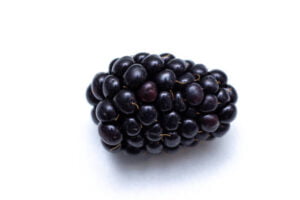 Antioxidant Properties
Antioxidant Properties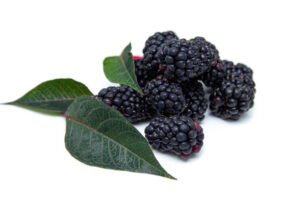 Cardiovascular Health
Cardiovascular Health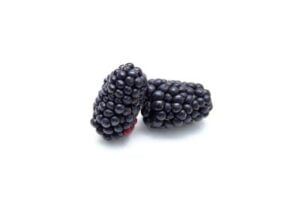 Cognitive Benefits
Cognitive Benefits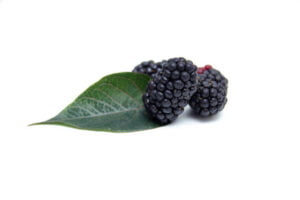 Anti-Inflammatory Effects
Anti-Inflammatory Effects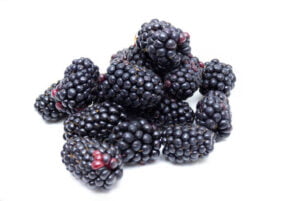 Digestive Health
Digestive Health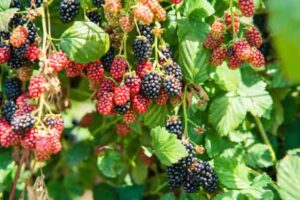 Skin Health
Skin Health